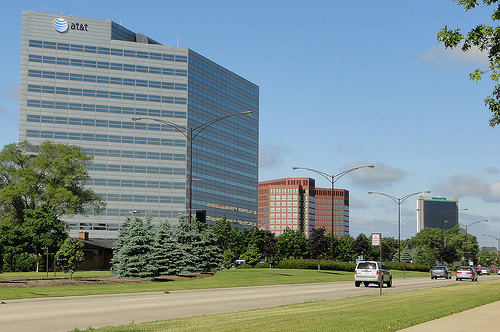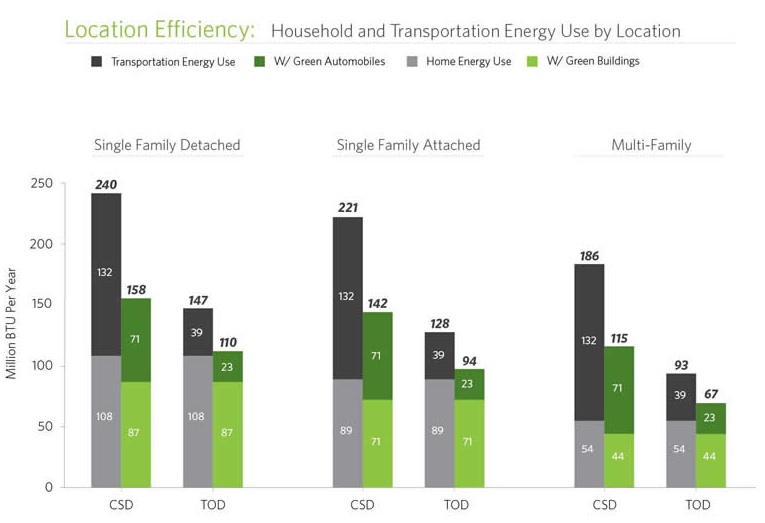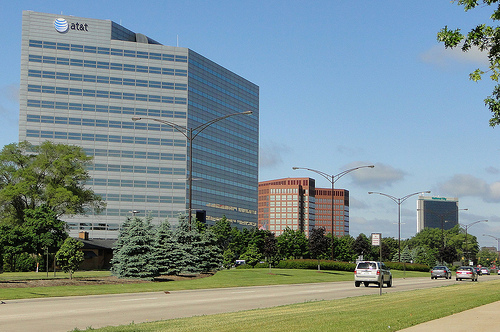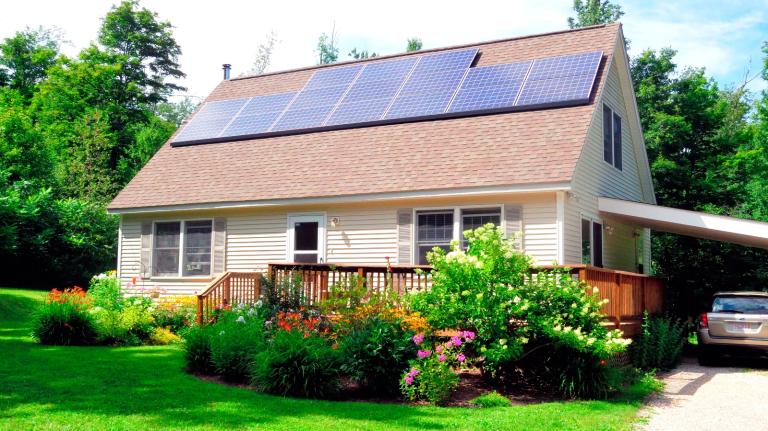 Troy, Michigan: can this place be saved?Photo: Wayne Senville, Planning Commissioners JournalThere’s a great discussion going on at the indispensable blog about the industrial Midwest, RustWire.com. It was prompted by their posting last week of a letter from Andrew Basile, Jr., the CEO of a legal firm with offices in Troy, Mich., entitled “Why our growing firm may have to leave Michigan.”
Troy, Michigan: can this place be saved?Photo: Wayne Senville, Planning Commissioners JournalThere’s a great discussion going on at the indispensable blog about the industrial Midwest, RustWire.com. It was prompted by their posting last week of a letter from Andrew Basile, Jr., the CEO of a legal firm with offices in Troy, Mich., entitled “Why our growing firm may have to leave Michigan.”
Basile says the core issue for his business is that he can’t find qualified people who want to work in the state of Michigan, in large part because sprawl development has made life there so crummy. Let him tell you about it:
We’d like to stay in Michigan, but we have a problem. It’s not taxes or regulations. There’s lots of talk about these issues but they have no impact on our business. We spend more on copiers and toner than we do on state taxes.
Our problem is access to talent. We have high-paying positions open for patent attorneys in the software and semiconductor space. Even though it is one of the best hiring environments for IP firms in 40 years, we cannot fill these positions. Most qualified candidates live out of state and simply will not move here, even though they are willing to relocate to other cities. Our recruiters are very blunt. They say it is almost impossible to recruit to Michigan without paying big premiums above competitive salaries on the coasts.
It’s nearly a certainty that we will have to relocate (or at a minimum expand) our business out of Michigan if we want to grow …
We are becoming a place where people without resources are grudgingly forced to live. A place without youth, prospects, respect, money or influence.
There’s a simple reason why many people don’t want to live here: it’s an unpleasant place because most of it is visually unattractive and because it is lacking in quality living options other than tract suburbia. Some might call this poor “quality of life.” A better term might be poor “quality of place.” In Metro Detroit, we have built a very bad physical place. We don’t have charming, vibrant cities and we don’t have open space. …
Having moved here from California five years ago, I will testify that Metro Detroit is a very hard place to live. Ask any former Detroiter in California, and you will hear a consistent recital of the flaws that make Metro Detroit so unattractive. Things are spread too far apart. You have to drive everywhere. There’s no mass transit. There are no viable cities. Lots of it is really ugly, especially the mile after mile of sterile and often dingy suburban strip shopping and utility wires that line our dilapidated roads (note above). There’s no nearby open space for most people (living in Birmingham, it’s 45 minutes in traffic to places like Proud Lake or Kensington). It’s impossible to get around by bike without taking your life in your hands. Most people lead sedentary lifestyles. There’s a grating “car culture” that is really off-putting to many people from outside of Michigan. I heard these same complaints when I left 25 years ago. In a quarter century, things have only gotten considerably worse.
Ironically, California is supposed to be a sprawling place. In my experience they are pikers compared to us. Did you know that Metro Detroit is one half the density of Los Angeles County?
The fundamental problem it seems to me is that our region as gone berserk on suburbia to the expense of having any type of nearby open space or viable urban communities, which are the two primary spatial assets that attract and retain the best human capital. For example, I noted sadly the other day that the entire Oakland Country government complex was built in a field 5 miles outside of downtown Pontiac. I find that decision shocking. What a wasted opportunity for maintaining a viable downtown Pontiac, not to mention the open space now consumed by the existing complex. What possibly could have been going through their minds? Happily, most of the men who made those foolish decisions 30 or 40 years ago are no longer in policy-making roles. A younger generation needs to recognize the immense folly that they perpetrated and begin the costly, decades long task of cleaning up the wreckage. [Emphasis added.]
There’s much more to it than that, and I highly recommend reading the whole thing.
In researching the image to go with this piece, I discovered that one of the Michigan communities prominently mentioned in Basile’s letter — Troy — is actually the focus of planning efforts to improve its “quality of place,” as Basile calls it. But will it be enough?
As I write this, the Rust Wire post has gathered 78 comments, some from people violently disagreeing with Basile, and some violently agreeing. I’m curious to know: What do you think about the role of sprawl development in quality of life? Have you had to make a move lately for employment? Have walkability, open space, and/or lack of sprawl played a role in your decision-making?
Let us know.




